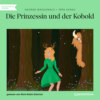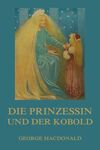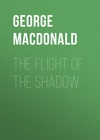Buch lesen: «Alec Forbes of Howglen», Seite 20
CHAPTER XLVII
In one or two of his letters, which were never very long, Alec had just mentioned Kate; and now Mrs Forbes had many inquiries to make about her. Old feelings and thoughts awoke in her mind, and made her wish to see the daughter of her old companion. The absence of Annie, banished once more at the suggestion of worldly prudence, but for whose quiet lunar smile not even Alec's sunny presence could quite make up, contributed no doubt to this longing after the new maiden. She wrote to Mr Fraser, asking him to allow his niece to pay her a visit of a few weeks; but she said nothing about it to Alec. The arrangement happened to be convenient to Mr Fraser, who wished to accept an invitation himself. It was now the end of April; and he proposed that the time should be fixed for the beginning of June.
When this favourable response arrived, Mrs Forbes gave Alec the letter to read, and saw the flush of delight that rose to his face as he gathered the welcome news. Nor was this observation unpleasant to her; for that Alec should at length marry one of her own people was a grateful idea.
Alec sped away into the fields. To think that all these old familiar places would one day be glorified by her presence! that the daisies would bend beneath the foot of the goddess! and the everlasting hills put on a veil of tenderness from the reflex radiance of her regard! A flush of summer mantled over the face of nature, the flush of a deeper summer than that of the year—of the joy that lies at the heart of all summers. For a whole week of hail, sleet, and "watery sunbeams" followed, and yet in the eyes of Alec the face of nature still glowed.
When, after long expectation, the day arrived, Alec could not rest. He wandered about all day, haunting his mother as she prepared his room for Kate, hurrying away with a sudden sense of the propriety of indifference, and hurrying back on some cunning pretext, while his mother smiled to herself at his eagerness and the transparency of his artifice. At length, as the hour drew near, he could restrain himself no longer. He rushed to the stable, saddled his pony, which was in nearly as high spirits as himself, and galloped off to meet the mail. The sun was nearing the west; a slight shower had just fallen; the thanks of the thirsty earth were ascending in odour; and the wind was too gentle to shake the drops from the leaves. To Alec, the wind of his own speed was the river that bore her towards him; the odours were wafted from her approach; and the sunset sleepiness around was the exhaustion of the region that longed for her Cyther an presence.
At last, as he turned a corner of the road, there was the coach; and he had just time to wheel his pony about before it was up with him. A little gloved hand greeted him; the window was let down; and the face he had been longing for shone out lovelier than ever. There was no inside passenger but herself; and, leaning with one hand on the coach-door, he rode alongside till they drew near the place where the gig was waiting for them, when he dashed on, gave his pony to the man, was ready to help her as soon as the coach stopped, and so drove her home in triumph to his mother.
Where the coach stopped, on the opposite side of the way, a grassy field, which fell like a mantle from the shoulders of a hill crowned with firs, sloped down to the edge of the road. From the coach, the sun was hidden behind a thick clump of trees, but his rays, now red with rich age, flowed in a wide stream over the grass, and shone on an old Scotch fir which stood a yard or two from the highway, making its red bark glow like the pools which the prophet saw in the desert. At the foot of this tree sat Tibbie Dyster; and from her red cloak the level sun-tide was thrown back in gorgeous glory; so that the eyeless woman, who only felt the warmth of the great orb, seemed, in her effulgence of luminous red, to be the light-fountain whence that torrent of rubescence burst. From her it streamed up to the stem and along the branches of the glowing fir; from her it streamed over the radiant grass of the up-sloping field away towards the western sun. But the only one who saw the splendour was a shoemaker, who rubbed his rosiny hands together, and felt happy without knowing why.
Alec would have found it difficult to say whether or not he had seen the red cloak. But from the shadowy side of it there were eyes shining upon him, with a deeper and truer, if with a calmer, or, say, colder devotion, than that with which he regarded Kate. The most powerful rays that fall from the sun are neither those of colour nor those of heat.—Annie sat by Tibbie's side—the side away from the sun. If the East and the West might take human shape—come forth in their Oreads from their hill-tops, and meet half-way between—there they were seated side by side: Tibbie, old, scarred, blind Tibbie, was of the west and the sunset, the centre of a blood-red splendour; cold, gentle Annie, with her dark hair, blue eyes, and the sad wisdom of her pale face, was of the sun-deserted east, between whose gray clouds, faintly smiling back the rosiness of the sun's triumphal death, two or three cold stars were waiting to glimmer.
Tibbie had come out to bask a little, and, in the dark warmth of the material sun, to worship that Sun whose light she saw in the hidden world of her heart, and who is the Sun of all the worlds; to breathe the air, which, through her prison-bars, spoke of freedom; to give herself room to long for the hour when the loving Father would take her out of the husk which infolded her, and say to her: "See, my child." With the rest of the travailing creation, she was groaning in hopeful pain—not in the pain of the mother, but in the pain of the child, soon to be forgotten in the following rest.
If my younger readers want to follow Kate and Alec home, they will take it for a symptom of the chill approach of "unlovely age," that I say to them: 'We will go home with Tibbie and Annie, and hear what they say. I like better to tell you about ugly blind old Tibbie than about beautiful young Kate.—But you shall have your turn. Do not think that we old people do not care for what you care for. We want more than you want—a something without which what you like best cannot last.'
"What did the coch stop for, Annie, lass?" asked Tibbie, as soon as the mail had driven on.
"It's a lady gaein to Mistress Forbes's at Howglen."
"Hoo ken ye that?"
"'Cause Alec Forbes rade oot to meet her, and syne took her hame i' the gig."
"Ay! ay! I thought I heard mair nor the ordinar nummer o' horse-feet as the coch cam' up. He's a braw lad, that Alec Forbes isna he?"
"Ay is he," answered Annie, sadly; not from jealousy, for her admiration of Alec was from afar; but as looking up from purgatorial exclusion to the paradise of Howglen, where the beautiful lady would have all Mrs Forbes, and Alec too, to herself.
The old woman caught the tone, but misinterpreted it.
"I doobt," she said, "he winna get ony guid at that college."
"What for no?" returned Annie. "I was at the school wi' him, and never saw onything to fin' fau't wi'."
"Ow na, lassie. Ye had naething to do fin'in' fau't wi' him. His father was a douce man, an' maybe a God-fearin' man, though he made but sma' profession. I think we're whiles ower sair upo' some o' them that promises little, and maybe does the mair. Ye min' what ye read to me afore we cam' oot thegither, aboot the lad that said till's father, I go not; but afterwards he repented and gaed?"
"Ay."
"Weel, I think we'll gang hame noo."
They rose, and went, hand in hand, over the bridge, and round the end of its parapet, and down the steep descent to the cottage at its foot, Tibbie's cloak shining all the way, but, now that the sun was down, with a chastened radiance. When she had laid it aside, and was seated on her low wooden chair within reach of her spinning-wheel,
"Noo," said Tibbie, "ye'll jist read a chapter till me, lassie, afore ye gang hame, and syne I s' gang to my bed. Blin'ness is a sair savin' o' can'les."
She forgot that it was summer, when, in those northern regions, the night has no time to gather before the sun is flashing again in the east.
The chapter Annie chose was the ninth of St John's Gospel, about Jesus curing the man blind from his birth. When she had finished, Annie said,
"Michtna he cure you, Tibbie, gin ye spiered at him?"
"Ay micht he, and ay will he," answered Tibbie. "I'm only jist bidin' his time. But I'm thinkin' he'll cure me better yet nor he cured that blin' man. He'll jist tak' the body aff o' me a'thegither, and syne I'll see, no wi' een like yours, but wi' my haill speeritual body. Ye min' that verse i' the prophecees o' Ezakiel: I ken't weel by hert. It says: 'And their whole boady, and their backs, and their han's, and their wings, and the wheels, were full of eyes roon aboot, even the wheels that they four had.' Isna that a gran' text? I wiss Mr Turnbull wad tak' it into his heid to preach frae that text sometime afore it comes, which winna be that lang, I'm thinkin'. The wheels'll be stoppin' at my door or lang."
"What gars ye think that, Tibbie? There's no sign o' deith aboot you,
I'm sure," said Annie.
"Weel, ye see, I canna weel say. Blin' fowk somehoo kens mair nor ither fowk aboot things that the sicht o' the een has unco little to do wi'. But never min'. I'm willin' to bide i' the dark as lang as He likes. It's eneuch for ony bairn to ken that its father's stan'in' i' the licht, and seein' a' aboot him, and sae weel able to guide hit, though it kensna whaur to set doon its fit neist. And I wat He's i' the licht. Ye min' that bit aboot the Lord pittin' Moses intil a clift o' the rock, and syne coverin' him wi' his han' till he was by him?"
"Ay, fine that," answered Annie.
"Weel, I canna help thinkin' whiles, that the dark aboot me's jist the how o' the Lord's han'; and I'm like Moses, only wi' this differ, that whan the Lord tak's his han' aff o' me, it'll be to lat me luik i' the face o' him, and no to lat me see only his back pairts, which was a' that he had the sicht o'; for ye see Moses was i' the body, and cudna bide the sicht o' the face o' God. I daursay it wad hae blin' 't him. I hae heard that ower muckle licht'll ca fowk blin' whiles. What think ye, lassie?"
"Ay; the lichtnin' blin's fowk whiles. And gin I luik straucht at the sun, I can see nothing efter't for a whilie."
"I tell ye sae!" exclaimed Tibbie triumphantly. "And do ye min' the veesion that the apostle John saw in Pawtmos? I reckon he micht hae thocht lang there, a' him lane, gin it hadna been for the bonnie things, and the gran' things, and the terrible things 'at the Lord loot him see. They war gran' sichts! It was the veesion o' the Saviour himsel'—Christ himsel'; and he says that his coontenance was as the sun shineth in his strength. What think ye o' that, lass!"
This was not a question, but an exulting exclamation. The vision in Patmos proved that although Moses must not see the face of God because of its brightness, a more favoured prophet might have the vision. And Tibbie, who had a share in the privileges of the new covenant, who was not under the law like Moses, but under grace like John, would one day see the veil of her blindness shrivel away from before her deeper eyes, burnt up by the glory of that face of God, which is a consuming fire.—I suppose that Tibbie was right in the main. But was it not another kind of brightness, a brightness without effulgence, a brightness grander and more glorious, shining in love and patience, and tenderness and forgiveness and excuse, that Moses was unfit to see, because he was not well able to understand it, until, ages after, he descended from heaven upon the Mount of Transfiguration, and the humble son of God went up from the lower earth to meet him there, and talk with him face to face as a man with his friend?
Annie went home to her garret. It was a singular experience the child had in the changes that came to her with the seasons. The winter with its frost and bitter winds brought her a home at Howglen; the summer, whose airs were molten kisses, took it away, and gave her the face of nature instead of the face of a human mother. For the snug little chamber in which she heard with a quiet exultation the fierce rush of the hail-scattering tempest against the window, or the fluffy fall of the snow-flakes, like hands of fairy babies patting the glass, and fancied herself out in the careering storm, hovering on the wings of the wind over the house in which she lay soft and warm—she had now the garret room, in which the curtainless bed, with its bare poles, looked like a vessel in distress at sea, and through the roof of which the winds found easy way. But the winds were warm now, and through the skylight the sunbeams illuminated the floor, showing all the rat-holes and wretchedness of decay.
There was comfort out of doors in the daytime—in the sky and the fields and all the "goings-on of life." And this night, after this talk with Tibbie, Annie did not much mind going back to the garret. Nor did she lie awake to think about the beautiful lady Alec had taken home with him.
And she dreamed again that she saw the Son of Man. There was a veil over his face like the veil that Moses wore, but the face was so bright that it almost melted the veil away, and she saw what made her love that face more than the presence of Alec, more than the kindness of Mrs Forbes or Dowie, more than the memory of her father.
CHAPTER XLVIII
Alec did not fall asleep so soon. The thought that Kate was in the house—asleep in the next room, kept him awake. Yet he woke the next morning earlier than usual. There were bands of golden light upon the wall, though Kate would not be awake for hours yet.
He sprung out of bed, and ran to the banks of the Glamour. Upon the cold morning stream the sun-rays fell slanting and gentle. He plunged in, and washed the dreams from his eyes with a dive, and a swim under water. Then he rose to the surface and swam slowly about under the overhanging willows, and earthy banks hollowed by the river's flow into cold damp caves, up into the brown shadows of which the water cast a flickering shimmer. Then he dressed himself, and lay down on the meadow grass, each blade of which shadowed its neighbour in the slant sunlight. Cool as it still was with the coldness of the vanished twilight, it yet felt warm to his bare feet, fresh from the waters that had crept down through the night from the high moor-lands. He fell fast asleep, and the sheep came and fed about him, as if he had been one of themselves. When he woke, the sun was high; and when he reached the house, he found his mother and Kate already seated at breakfast—Kate in the prettiest of cotton dresses, looking as fresh and country-like as the morning itself. The window was open, and through the encircling ivy, as through a filter of shadows, the air came fresh and cool. Beyond the shadow of the house lay the sunshine, a warm sea of brooding glory, of still power; not the power of flashing into storms of splendour beneath strange winds, but of waking up and cherishing to beauty the shy life that lay hidden in all remotest corners of the teeming earth.
"What are you going to do with Kate to-day, Alec?" said his mother.
"Whatever Kate likes," answered Alec.
"I have no choice," returned Kate. "I don't know yet what I have to choose between. I am in your hands, Alec."
It was the first time she had called him by his name, and a spear of sunshine seemed to quiver in his heart. He was restless as a hyena till she was ready. He then led her to the banks of the river, here low and grassy, with plenty of wild flowers, and a low babblement everywhere.
"This is delightful," said Kate. "I will come here as often as you like, and you shall read to me."
"What shall I read? Would you like one of Sir Walter's novels?"
"Just the thing."
Alec started at full speed for the house.
"Stop," cried Kate. "You are not going to leave me alone beside this—talking water?"
"I thought you liked the water," said Alec.
"Yes. But I don't want to be left alone beside it. I will go with you, and get some work."
She turned away from the stream with a strange backward look, and they walked home.
But as Kate showed some disinclination to return to the river-side, Alec put a seat for her near the house, in the shadow of a silver birch, and threw himself on the grass at her feet. There he began to read the Antiquary, only half understanding it, in the enchantment of knowing that he was lying at her feet, and had only to look up to see her eyes. At noon, Mrs Forbes sent them a dish of curds, and a great jug of cream, with oatcakes, and butter soft from the churn; and the rippling shadow of the birch played over the white curds and the golden butter as they ate.
Am I not now fairly afloat upon the gentle stream of an idyl? Shall I watch the banks as they glide past, and record each fairy-headed flower that looks at its image in the wave? Or shall I mow them down and sweep them together in a sentence?
I will gather a few of the flowers, and leave the rest. But first I will make a remark or two upon the young people.
Those amongst my readers who have had the happiness to lead innocent boy-lives, will know what a marvellous delight it was to Alec to have this girl near him in his own home and his own haunts. He never speculated on her character or nature, any more than Hamlet did about those of Ophelia before he was compelled to doubt womankind. His own principles were existent only in a latent condition, undeveloped from good impulses and kind sentiments. For instance: he would help any one whose necessity happened to make an impression upon him, but he never took pains to enter into the feelings of others—to understand them from their own point of view: he never had said to himself, "That is another me."
Correspondent to this condition were some of Kate's theories of life and its duties.
The question came up, whether a certain lady in fiction had done right in running away with her lover. Mrs Forbes made a rather decided remark on the subject. Kate said nothing, but her face glowed.
"Tell us what you think about it, Katie," said Mrs Forbes.
Katie was silent for a moment. Then with the air of a martyr, from whom the rack can only extort a fuller confession of his faith—though I fear she had no deeper gospel at the root of it than Byron had brought her—she answered:
"I think a woman must give up everything for love."
She was then precisely of the same opinion as Jean Paul's Linda in Titan.
"That is very true, I daresay," said Mrs Forbes; "but I fear you mean only one kind of love. Does a woman owe no love to her father or mother because she has a lover?"
To this plain question Kate made no reply, but her look changed to one of obstinacy.
Her mother died when she was a child, and her father had kept himself shut up in his study, leaving her chiefly to the care of a Shetland nurse, who told her Scandinavian stories from morning to night, with invention ever ready to supply any blank in the tablets of her memory.
Alec thought his mother's opinion the more to be approved, and Kate's the more to be admired; showing the lack of entireness in his nature, by thus dissociating the good and the admirable. That which is best cannot be less admirable than that which is not best.
CHAPTER XLIX
The next day saw Alec walking by the side of Kate mounted on his pony, up a steep path to the top of one of the highest hills surrounding the valley. It was a wild hill, with hardly anything growing on it but heather, which would make it regal with purple in the autumn: no tree could stand the blasts that blew over that hill in winter. Having climbed to the topmost point, they stood and gazed. The country lay outstretched beneath in the glow of the June day, while around them flitted the cool airs of heaven. Above them rose the soaring blue of the June sky, with a white cloud or two floating in it, and a blue peak or two leaning its colour against it. Through the green grass and the green corn below crept two silvery threads, meeting far away and flowing in one—the two rivers which watered the valley of Strathglamour. Between the rivers lay the gray stone town, with its roofs of thatch and slate. One of its main streets stopped suddenly at the bridge with the three arches above Tibbie's cottage; and at the other end of the bridge lay the green fields.
The landscape was not one of the most beautiful, but it had a beauty of its own, which is all a country or a woman needs; and Kate sat gazing about her in evident delight. She had taken off her hat to feel the wind, and her hair fell in golden heaps upon her shoulders, and the wind and the sunbeams played at hide-and-seek in it.
In a moment the pleasure vanished from her face. It clouded over, while the country lay full in the sun. Her eyes no longer looked wide abroad, but expressed defeat and retirement. Listlessly she began to gather her hair together.
"Do you ever feel as if you could not get room enough, Alec?" she said, wearily.
"No, I don't," he answered, honestly and stupidly. "I have always as much as I want. I should have thought you would—up here."
"I did feel satisfied for a moment; but it was only a moment. It is all gone now. I shall never have room enough."
Alec had nothing to say in reply. He never had anything to give Kate but love; and now he gave her more love. It was all he was rich in. But she did not care for his riches. And so, after gazing a while, she turned towards the descent. Alec picked up her hat, and took his place at the pony's head. He was not so happy as he thought he should be. Somehow she was of another order, and he could not understand her—he could only worship her.
The whole of the hot afternoon they spent on the grass, whose mottling of white clover filled the wandering airs with the odours of the honey of Hymettus. And after tea Kate sang, and Alec drank every tone as if his soul lived by hearing.
In this region the sun works long after hours in the summer, and they went out to see him go down weary. They leaned together over the gate and looked at the level glory, which now burned red and dim. Lamp of life, it burns all night long in the eternal night of the universe, to chase the primeval darkness from the great entrance hall of the "human mortals."
"What a long shadow everything throws!" said Kate. "When the shadows gather all together, and melt into one, then it is night. Look how the light creeps about the roots of the grass on the ridge, as if it were looking for something between the shadows. They are both going to die. Now they begin."
The sun diminished to a star—a spark of crimson fire, and vanished. As if he had sunk in a pool of air, and made it overflow, a gentle ripple of wind blew from the sunset over the grass. They could see the grass bending and swaying and bathing in its coolness before it came to them. It blew on their faces at length, and whispered something they could not understand, making Kate think of her mother, and Alec of Kate.
Now that same breeze blew upon Tibbie and Annie, as they sat in the patch of meadow by the cottage, between the river and the litster's dam. It made Tibbie think of death, the opener of sleeping eyes, the uplifter of hanging hands. For Tibbie's darkness was the shadow of her grave, on the further border of which the light was breaking in music. Death and resurrection were the same thing to blind old Tibbie.
When the gentle, washing wind blew upon Annie, she thought of the wind that bloweth were it listeth; and that, if ever the Spirit of God blew upon her, she would feel it just like that wind of summer sunset—so cool, so blessed, so gentle, so living! And was it not God that breathed that wind upon her? Was he not even then breathing his Spirit into the soul of that woman-child?
It blew upon Andrew Constable, as he stood in his shop-door, the easy labour of his day all but over. And he said to his little weasel-faced, douce, old-fashioned child who stood leaning against the other door-cheek:
"That's a fine caller bit blastie, Isie! Dinna ye like to fin' 't blawin' upo' yer het cheeks, dawtie?"
And she answered,
"Ay, I like it weel, daddie; but it min's me some upo' the winter."
And Andrew looked anxiously at the pale face of his child, who, at six years old, in the month of June, had no business to know that there was any winter. But she was the child of elderly parents, and had not been born in time; so that she was now in reality about twenty.
It blew upon Robert Bruce, who had just run out into the yard, to see how his potatoes and cabbages were coming on. He said
"It's some cauld," and ran in again to put on his hat.
Alec and Kate, I have said, stood looking into the darkening field. A great flock of rooks which filled the air with their rooky gossip, was flying straight home to an old gray ruin just visible amongst some ancient trees. They had been gathering worms and grubs all day, and now it was bed time. They felt, through all their black feathers, the coolness of that evening breeze which came from the cloudy mausoleum already built over the grave of the down-gone sun.
Kate hearing them rejoicing far overhead, searched for them in the darkening sky, found them, and watched their flight, till the black specks were dissolved in the distance. They are not the most poetic of birds, but in a darkening country twilight, over silent fields, they blend into the general tone, till even their noisy caw suggests repose. But it was room Kate wanted, not rest. She would know one day, however, that room and rest are the same, and that the longings for both spring from the same need.
"What place is that in the trees?" she asked.
"The old Castle of Glamerton," answered Alec. "Would you like to go and see it?"
"Yes; very much."
"We'll go to-morrow, then."
"The dew is beginning to fall, Kate," said Mrs Forbes, who now joined them. "You had better come in."
Alec lingered behind. An unknown emotion drew his heart towards the earth. He would see her go to sleep in the twilight, which was now beginning to brood over her, as with the brown wings of a lovely dull-hued hen-bird. The daisies were all asleep, spotting the green grass with stars of carmine; for their closed red tips, like the finger-points of two fairy hands, tenderly joined together, pointed up in little cones to keep the yellow stars warm within, that they might shine bright when the great star of day came to look for them. The light of the down-gone sun, the garment of Aurora, which, so short would be her rest, she had not drawn close around her on her couch, floated up on the horizon, and swept slowly northwards, lightly upborne on that pale sea of delicate green and gold, to flicker all night around the northern coast of the sky, and, streaming up in the heavens, melt at last in the glory of the uprisen Titan. The trees stood still and shadowy as clouds, but breathing out mysterious odours. The stars overhead, half-molten away in the ghostly light that would not go, were yet busy at their night-work, ministering to the dark sides of the other worlds. There was no moon. A wide stillness and peace, as of a heart at rest, filled space, and lying upon the human souls with a persistent quietness that might be felt, made them know what might be theirs. Now and then a bird sprang out with a sudden tremor of leaves, suddenly stilled. But the bats came and went in silence, like feelings yet unembodied in thoughts, vanishing before the sight had time to be startled at their appearing. All was marvel. And the marvel of all was there—where the light glimmered faintly through the foliage. He approached the house with an awe akin to that with which an old poetic Egyptian drew near to the chamber of the goddess Isis.
He entered, and his Isis was laughing merrily.
In the morning, great sun-crested clouds with dark sides hung overhead; and while they sat at breakfast, one of those glorious showers, each of whose great drops carries a sun-spark in its heart, fell on the walks with a tumult of gentle noises, and on the grass almost as silently as if it had been another mossy cloud. The leaves of the ivy hanging over the windows quivered and shook, each for itself, beneath the drops; and between the drops, one of which would have beaten him to the earth, wound and darted in safety a great humble bee.
Kate and Alec went to the open window and looked out on the rainy world, breathing the odours released from the grass and the ground. Alec turned from the window to Kate's face, and saw upon it a keen, yet solemn delight. But as he gazed, he saw a cloud come over it. The arched upper lip dropped sadly upon the other, and she looked troubled and cold. Instinctively he glanced out again for the cause. The rain had become thick and small, and a light opposing wind disordered its descent with broken and crossing lines.
This change from a summer to a winter rain had altered Kate's mood, and her face was now, as always, a reflex of the face of nature.
"Shut the window, please Alec," she said, with a shiver.
"We'll have a fire directly," said Alec.
"No, no," returned Kate, trying to smile. "Just fetch me a shawl from the closet in my room."
Alec had not been in his own room since Kate came. He entered it with a kind of gentle awe, and stood just within the door, gazing as if rebuked.
From a pair of tiny shoes under the dressing-table, radiated a whole roomful of feminity. He was almost afraid to go further, and would not have dared to look in the mirror. In three days her mere presence had made the room marvellous.
Recovering himself, he hastened to the cloaet, got the shawl, and went down the stair three steps at a time.
"Couldn't you find it, Alec?" said Kate.
"Oh! yes; I found it at once," answered Alec, blushing to the eyes.
I wonder whether Kate guessed what made the boy blush. But it does not matter much now. She did look curiously at him for a moment.




















